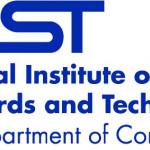- Settore: Technology
- Number of terms: 2742
- Number of blossaries: 0
- Company Profile:
The National Institute of Standards and Technology (NIST) — known between 1901 and 1988 as the National Bureau of Standards (NBS) — is a measurement standards laboratory and a non-regulatory agency of the United States Department of Commerce. The institute's official mission is to promote U.S. ...
Any sort algorithm using comparisons between keys, and nothing else about the keys, to arrange items in a predetermined order. An alternative is a restricted universe sort such as counting sort or bucket sort.
Industry:Computer science
Any sort algorithm where data is distributed from its input to multiple intermediate structures which are then gathered and placed on the output.
Industry:Computer science
Any sort algorithm which uses exclusively main memory during the sort. This assumes high-speed random access to all memory.
Industry:Computer science
Any string that can be obtained by deleting zero or more symbols from a given string.
Industry:Computer science
Arrange items in a predetermined order. There are dozens of algorithms, the choice of which depends on factors such as the number of items relative to working memory, knowledge of the orderliness of the items or the range of the keys, the cost of comparing keys vs. the cost of moving items, etc. Most algorithms can be implemented as an in-place sort, and many can be implemented so they are stable, too. Formal Definition: The sort operation may be defined in terms of an initial array, S, of N items and a final array, S′, as follows. <ol> <li>S′<sub>i</sub> ≤ S′<sub>i+1</sub>, 0 < i < N <br /> (the items are in order) and <li>S′ is a permutation of S. </ol>
Industry:Computer science
Beginning with the (leftmost) position in a string and trying each position in turn, find the number of characters for which the pattern and the substring beginning at that position don't match (the Hamming distance). Return the first position with k or fewer mismatches.
Industry:Computer science
C. A. R. Hoare's algebraic theory to formalize the notion of concurrent computation.
Industry:Computer science
Calculate an associative function, f, on all prefixes of an n-element array, that is, s(0), f(s(0), s(1)), f(s(0), f(s(1), s(2))), ..., f(s(0), f(s(1), ... f(s(n-2), s(n-1))...)), using Θ(n) processors in Θ(log n) time. The algorithm is <pre> for j := 0 to lg(n)-1 do <br /> for i := 2<sup>j</sup> to n-1 parallel-do<br /> s(i) := f(s(i-2<sup>j</sup>), s(i)) </pre> where lg is the logarithm base 2, and parallel-do does the innermost computations in parallel.
Industry:Computer science
